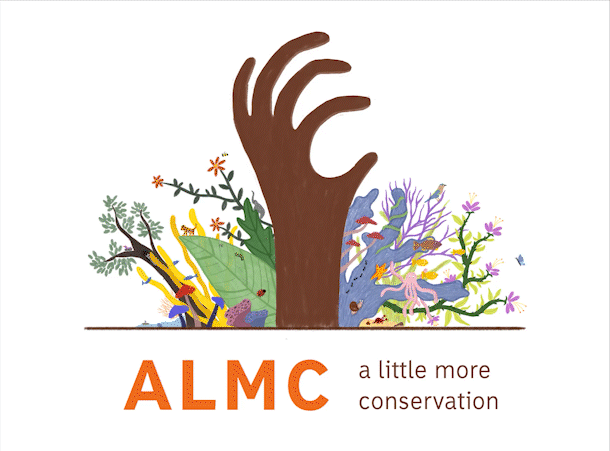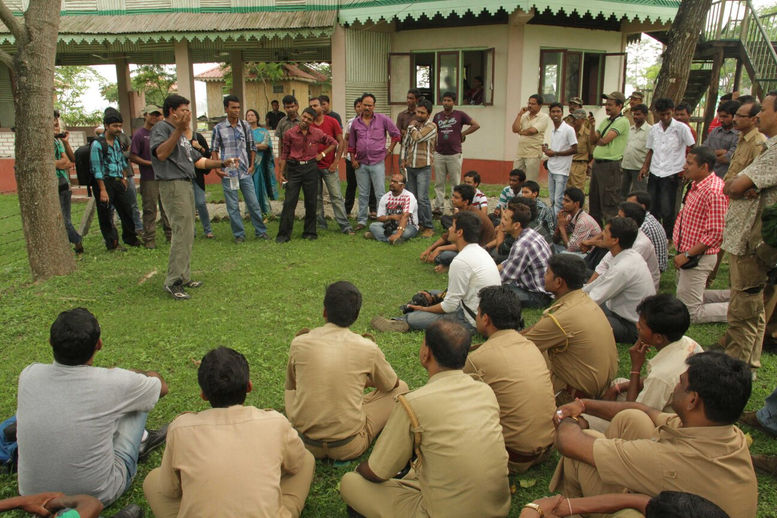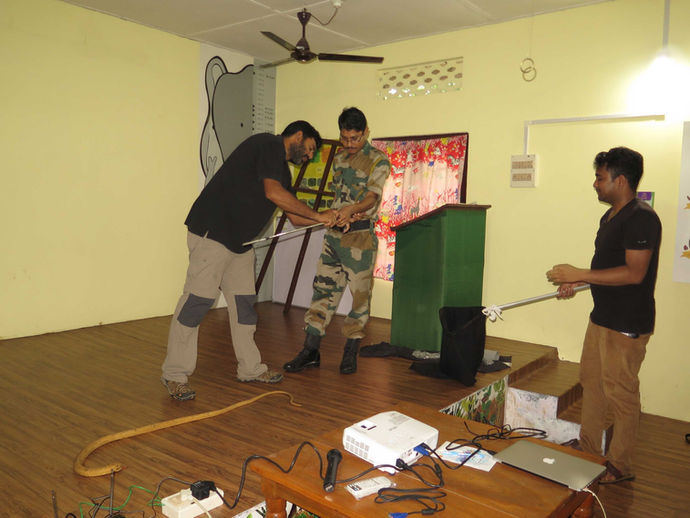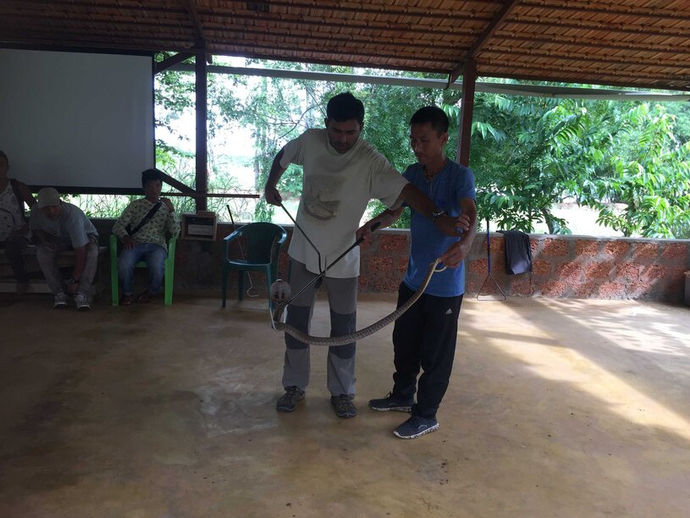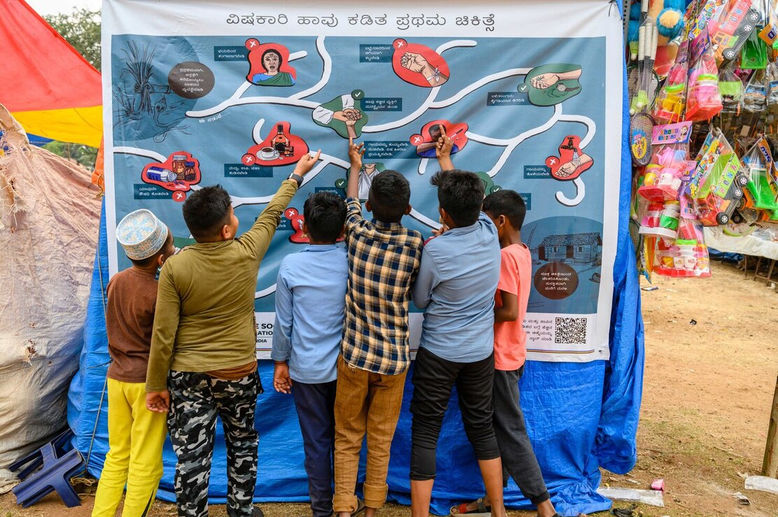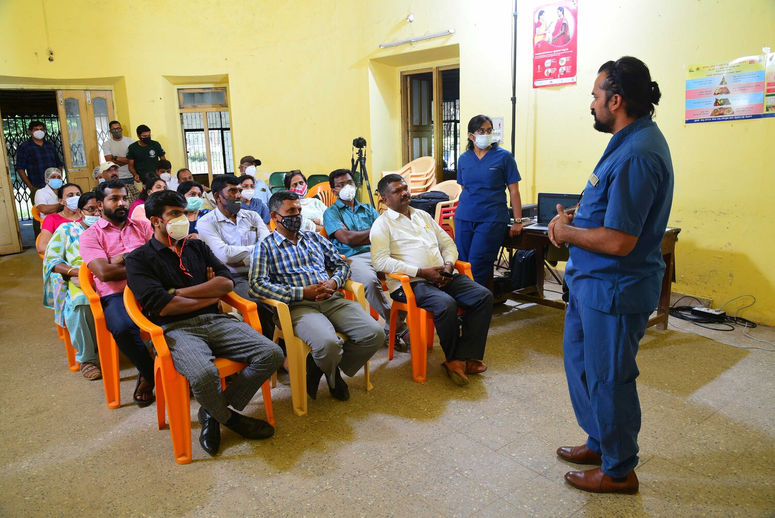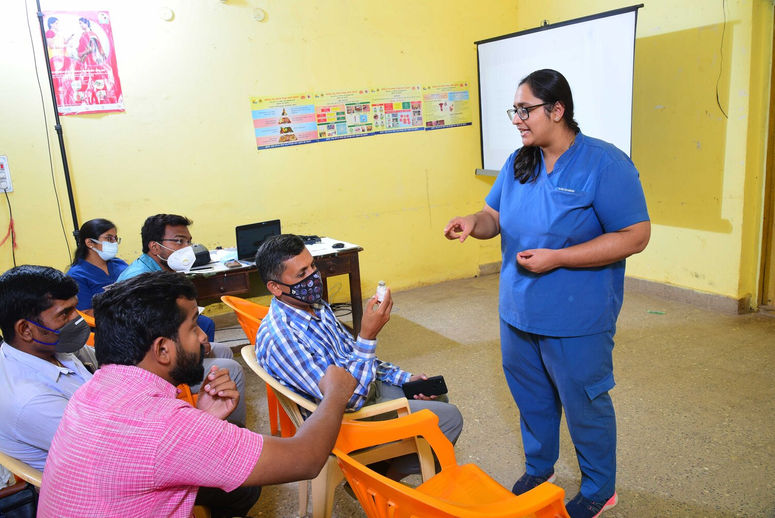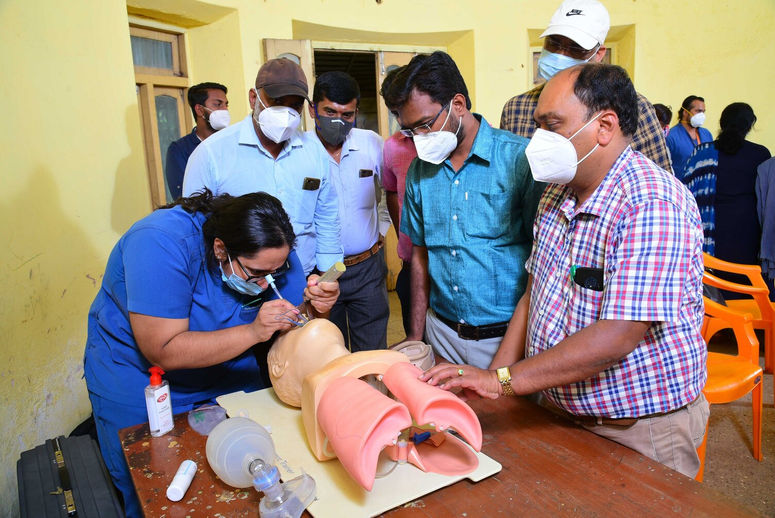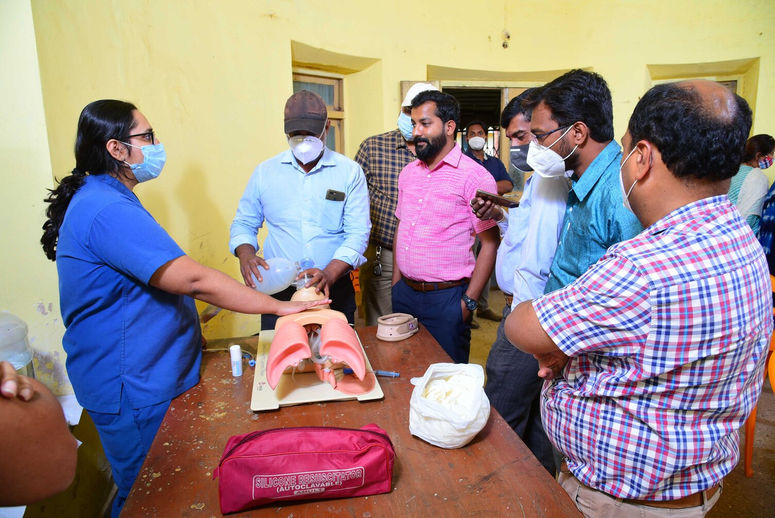A little more about this project
Through a multifaceted strategy, The Liana Trust is working on several ways to save human and snake lives via outreach, research and more.
The current situation:
As per this study, an estimated 1 million people get bitten by snakes every year in India. It's a daunting number, to say the least. However, unlike any other human-wildlife conflict situations, avoiding snake bites is much easier than most people think. As Gerry Martin, co-founder of The Liana Trust, puts it: we’ve learned how to stay safe around potentially dangerous urban-dwelling situations that are statistically much more likely to result in an accident/fatality than an encounter with a snake; it's entirely possible to also learn how to live with snakes without incident.
However, despite human-snake conflict being a bigger issue in India than all other forms of human-wildlife conflict combined, this predominantly rural India based issue is largely overlooked. That’s where the tragedy really lies. As a country, we haven’t paid enough attention to it, and that’s commensurate with our knowledge of how to both prevent and treat snake bites, which has resulted in the loss of both human and snake lives, since snakes are often killed on sight out of fear.
How TLT is addressing this:
The Liana Trust is working on both the prevention and treatment of snake bites through a deeply considered framework that tackles multiple complexities of this issue.
A] Awareness-building activities & distribution of protective gear
i) Public education via awareness workshops, seminars and campaign posters, which directly target communities that are most frequently affected by snake bites, help them raise awareness on how to live safely amongst snakes. These are conducted in schools, public gatherings as well as The Liana Forest Farm.
ii) Medical staff training: The Liana Trust have already trained the medical staff in Hunsur Taluk on how to effectively treat venomous snake bites and are now expanding this to the larger Mysore district.
iii) Distributing gumboots and torches to help offer physical protection to farmers and other individuals whose areas of work or homes tend to put them in the vicinity of venomous snakes like the Russell’s viper.
iv) Intervening in times of conflict: The Liana Trust also attends to ‘snake calls’, where they help remove snakes from households/other spaces inhabited by humans. At this time, they also educate those present on how to coexist peacefully with the snakes that live around us.
B] Study of the dynamics of human-snake conflict in agricultural landscape
Currently, one of the main reasons that people get bitten by snakes is because we don’t know enough about their behaviour in human-dominated spaces. The Liana Trust is conducting path-breaking research to fill this gap: they’re conducting a telemetry-based study of snakes and their interactions with humans in Hunsur Taluk, in collaboration with the Humane Society International.
The study involves tracking 30 Russell’s vipers, the single-most common snake species involved in venomous snakebite cases in the region, via radio signals that are transmitted through devices that have been attached to them.
One aspect of this study has already been completed and published, and has provided more insights into the factors that determine whether a Russell’s vipers snake will escape or remain in a potentially high-risk conflict situation.
Once fully completed, this study will be able to help rural populations all around the country, with a focus on South India, through a framework that the Liana Trust is developing to help assess and change the ground realities of snake bites over various geographies.
Any funds donated to this project will majorly go towards the equipment costs of this study, along with salaries for field researches and logistical costs.
C] Fostering knowledge and understanding through a Snakes Exhibit
The Liana Trust is building a mini-museum at their base, where people can learn all about snakes and snakebite.
Often misunderstood, snakes actually play a vital role in ecosystems they inhabit. By fostering an understanding about them and how to safely coexist with them, The Liana Trust aims to dispel widespread fear of snakes, reduce human-snake conflict and inspire snake conservation efforts.
The exhibit will cater to children, youth and adults, and include sessions for students, Forest Department staff, medical personnel and at-risk communities (such as farmers and daily wage workers) in Mysore district. Information will be provided in English and Kannada, and the exhibit will be completely interactive with models, activities and games to keep visitors engaged.
Session topics will include:
Introduction to snake anatomy, including fang models
‘How to live safely with snakes’ display, including habitat models that demonstrate how and where snakes hide
Interactive displays that demonstrate how a pit viper sees you (using footage from an infrared camera)… and much more!
D] Study of Post-Bite Trauma
The Liana Trust is collaborating with the Humane Society International/India and various psychological specialists and researchers to understand and document the psychological impacts of snakebite.
They're doing this with the intent of helping both snakebite survivors as well as bereaved families who have lost family members to snake bites.
The first focus group discussions with snakebite survivors from across Hunsur Taluk have already been initiated - and findings so far have shown a pressing need to continue these studies, in an intensive effort, across rural agrarian communities.
Prior to the study, some survivors had not spoken of the bite in years, expressing that they had never been able to voice their feelings or allow their sense of trauma to show. Many have permanent physical impairment(s), compromised quality of life and ability to earn, and experience a diminishing of self worth. Survivors alluded to being ostracised by neighbours, friends and even family in some cases.
Uncovering these psychological impacts of snakebite will help design interventions to mitigate and manage this neglected tropical disease, both from a medical as well as mental health perspective.
